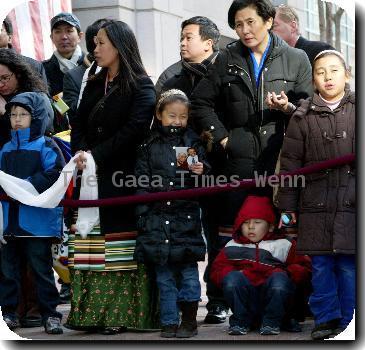Texas may become nuclear waste dumping ground for 36 other states, alarming environmentalists
By Betsy Blaney, APSaturday, May 22, 2010
Texas may get nuclear waste from dozens of states
ANDREWS, Texas — Texas was all set to be part of an agreement with Vermont to dump nuclear waste in a remote region of the Lone Star state, and for the most part people living near the site were OK with it.
Now, though, that compact could mushroom to include waste from 36 other states, reinvigorating those who oppose the project to fight harder.
Environmentalists, geologists, the Texas League of Women Voters and others say the huge dumping ground will pollute groundwater and otherwise wreak havoc with the environment. The company that runs the site contends it’ll be safe and many local residents applaud any expansion as a way to bring more jobs and prosperity to the West Texas scrubland.
“They got to put it somewhere,” said Kathy Trevino, a retired nurses’ aide who lives in Andrews, the closest Texas town to the site. “As long as they’re safe and don’t intentionally cause harm, I don’t have a problem with it.”
Opponents of the compact have an uphill climb in trying to stop the expansion. But they recently flooded the commission with thousands of comments critical of the rules that outline how the compact will handle other states’ applications to dispose of the waste in Texas. That forced the panel to delay voting on those rules.
Also, more than a dozen state lawmakers have joined the opposition, saying the commission needs to slow down the approval process.
The 1,340-acre site owned by Waste Control Specialists is one of the nation’s only dumps licensed to take all three categories of low-level waste.
The commission is proposing rules to regulate waste that would come in from other states. If approved, the facility would take the low-level waste which includes workers’ clothing, glass, metal and other materials used at nuclear power plants, hospitals, universities and research labs. Currently those facilities store the waste at their own sites.
In the early ’80s, the federal government began urging states to build low-level nuclear waste landfills, either on their own or in cooperation with other states in compact systems. Since then, South Carolina entered into a compact with New Jersey and Connecticut, agreeing to dispose of nuclear waste at a landfill that later accepted waste from dozens of other states.
Ten years ago, South Carolina lawmakers said they no longer wanted to be the nation’s dumping grounds and in 2008 the facility began accepting waste from only its compact partners, leading other states to look to Texas to store their waste.
And there could be more nuclear waste in need of a home if President Barack Obama moves ahead with his plan to build dozens of new nuclear facilities.
Environmentalists are largely worried about toxins from the site leaking into groundwater beneath the scrub brush land that’s brought oil prosperity to arid West Texas for nearly a century.
They point to South Carolina as an example. Tritium levels have been detected in groundwater beneath South Carolina’s nuclear waste landfill that are above the Environmental Protection Agency’s standard for safe drinking water. The company that runs the site acknowledged a leak, traced to the late 1970s, when the company says its disposal practices were not as advanced as today.
“I think it’s horrible,” longtime opponent Peggy Pryor said of the Texas site. “They still haven’t proved to me that it won’t leak into the aquifers.”
Radiation safety experts said they understand opponents’ concerns but questioned their validity.
“That does not mean there will be zero leaks,” said Andy Karam, a radiation safety expert with 30 years experience. “It just won’t hurt anybody. There won’t be enough radiation to be harmful.”
Company spokesman Chuck McDonald has said the site is safe and state and federal regulators approved it after exhaustive study and analysis.
An increase in volume from the other states’ waste would mean more money. The county gets 5 percent quarterly of Waste Control Specialists’ gross receipts from the waste disposal operation. Also, residents are backing the site with $75 million in bonds to build it.
Critics say the rules, which address process, don’t address safety issues for waste trucked along Texas roadways nor do they make clear how much the state’s financial liability goes up once the waste is here.
“Once waste comes into the state of Texas, the state of Texas accepts the economic burden … through the remainder of time, so I think we need to slow down,” said State Rep. Lon Burnam, D-Fort Worth.
The compact commission consists of two Vermont governor appointees and six who were appointed by Gov. Rick Perry.
Pat Bobeck, a geologist for more than two decades, left the state’s environmental agency in 2007 when her recommendation against approving the site was ignored.
More waste, Bobeck said, means bigger problems.
“It’s just like garbage in your garbage can — if you have more, it stinks more and faster,” she said. “When profit becomes more important than safety, safety goes out the window.”
Online:
Texas Low-Level Radioactive Waste Disposal Compact Commission: www.tllrwdcc.org/rule.html
Proposed rules: bit.ly/bQwJHM
Texas Commission on Environmental Quality: www.tceq.state.tx.us
Waste Control Specialists: www.wcstexas.com/
Tags: Andrews, Barack Obama, Environmental Activism, Environmental Concerns, Land Environment, North America, South Carolina, Texas, United States, Waste Management

